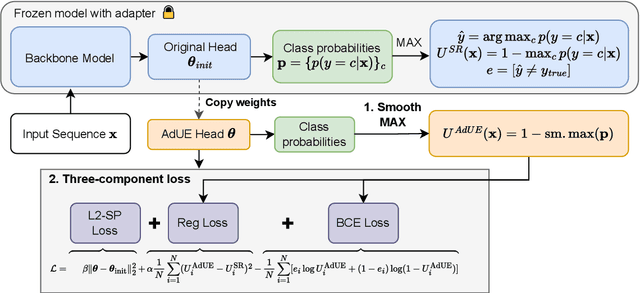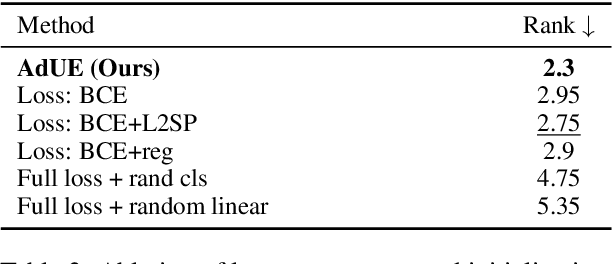Roman Makarov
AdUE: Improving uncertainty estimation head for LoRA adapters in LLMs
May 21, 2025



Abstract:Uncertainty estimation remains a critical challenge in adapting pre-trained language models to classification tasks, particularly under parameter-efficient fine-tuning approaches such as adapters. We introduce AdUE1, an efficient post-hoc uncertainty estimation (UE) method, to enhance softmax-based estimates. Our approach (1) uses a differentiable approximation of the maximum function and (2) applies additional regularization through L2-SP, anchoring the fine-tuned head weights and regularizing the model. Evaluations on five NLP classification datasets across four language models (RoBERTa, ELECTRA, LLaMA-2, Qwen) demonstrate that our method consistently outperforms established baselines such as Mahalanobis distance and softmax response. Our approach is lightweight (no base-model changes) and produces better-calibrated confidence.
Leveraging dendritic properties to advance machine learning and neuro-inspired computing
Jun 13, 2023

Abstract:The brain is a remarkably capable and efficient system. It can process and store huge amounts of noisy and unstructured information using minimal energy. In contrast, current artificial intelligence (AI) systems require vast resources for training while still struggling to compete in tasks that are trivial for biological agents. Thus, brain-inspired engineering has emerged as a promising new avenue for designing sustainable, next-generation AI systems. Here, we describe how dendritic mechanisms of biological neurons have inspired innovative solutions for significant AI problems, including credit assignment in multilayer networks, catastrophic forgetting, and high energy consumption. These findings provide exciting alternatives to existing architectures, showing how dendritic research can pave the way for building more powerful and energy-efficient artificial learning systems.
 Add to Chrome
Add to Chrome Add to Firefox
Add to Firefox Add to Edge
Add to Edge